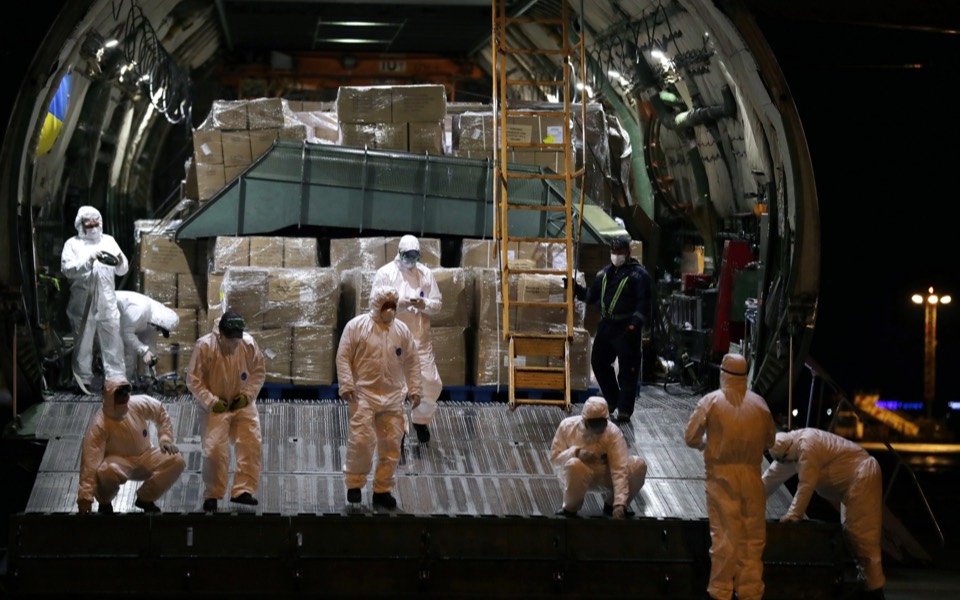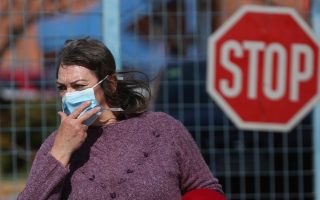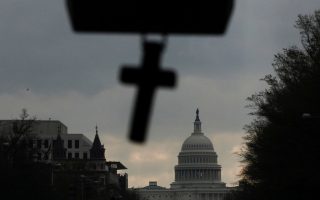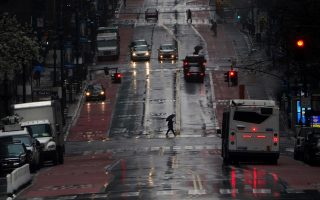Fighting Covid-19 requires social solidarity and humane policies

Countries across the globe have instituted radical measures in the fight against the novel coronavirus, Covid-19, to create physical distance: closing schools; shuttering shops and restaurants; asking families to barricade themselves indoors; securing their borders. As a public health professional, I strongly support measures that encourage social isolation, and fully trust the guidance from experts who have modeled the consequences of inaction. Having spoken to emergency room doctors bracing for the worst, I know that social isolation, however painful, is necessary to safeguard the integrity of our healthcare system and save lives. Yet, while I understand the reasons for these measures, as a mom of young kids stuck at home, I feel fear, frustration and sometimes doubt. I catch myself wondering: “Are these measures the right ones? Are they worth it?”
Over the next few weeks and months, individuals and families in Greece, the US and across the globe will continue to be asked to make difficult sacrifices. As the death toll rises, which it will, and as people lose their jobs and livelihoods, this doubt as to whether the “treatment” is worse than the disease will increase, and, for many, turn to anger. Already, the public is being presented with a series of false dichotomies. In the US, a new narrative of picking between destroying the economy and saving lives is emerging. Human rights – from civil liberties, to the right to seek asylum, and the rights of people with disabilities – are being suppressed by governments in the name of saving lives. And there is an unspoken assumption, evidenced by those hoarding medicines, food and toilet paper – that survival is a zero-sum game.
But poverty, homelessness, human rights abuses, racism and violence are not inevitable consequences of Covid-19. If they occur, it is because they reflect a moral failure in the way we have organized our societies. While scientists work to develop a cure and a vaccine, and doctors and nurses treat the sick, the rest of us have a responsibility to demand that our governments mitigate the unintended consequences of necessary public health measures and ensure a just and equitable response. Debate and constructive dialogue will be essential for the survival of our democracy during this crisis, and we must keep the ultimate goal in mind: to preserve both human life and human dignity.
A useful thought experiment, drawing on philosopher John Rawls’ notion of the “veil of ignorance,” can help guide us in demanding the right policies and in deciding how to act in our daily interactions with those around us. If you did not know your sex, your race, your age or nationality, your geographic location, your pre-existing health conditions, your wealth or employment status, how would you want your government and those in your community to respond to Covid-19? Imagine that you have just lost your job, are living in poverty and taking care of a child with a disability, what policies would you need your government to introduce? Imagine that you are a refugee escaping violence, living precariously in a tent on the island of Lesvos, or a homeless person on the streets of New York City, what additional measures would be necessary for you to survive?
As fear and anxiety rise and we heed the clear call to close doors and stay home, it is difficult not to simply turn inward to protect ourselves and our families, and in the process lose our humanity and sense of compassion. Yet social solidarity is critical to the success of any response. At the Francois-Xavier Bagnoud Center for Health and Human Rights at Harvard, we are committed to sharing examples of humane policies that are being implemented by different public and private entities to combat Covid-19 while addressing the deep inequities of our world. These include policies to ensure people have paid sick leave; decisions to suspend evictions and provide hotel rooms for homeless people; calls to stop deportations or release prisoners; and efforts by individuals to form collectives to distribute groceries and needed provisions to elderly neighbors and those with disabilities.
When this nightmare is over, and we do an accounting of lives lost and livelihoods destroyed, I hope that we can at least find some comfort in having made the right decisions to protect the most vulnerable in our communities and will have put in place new, just measures that will stay and protect us from a future pandemic.
Natalia Linos is a social epidemiologist and executive director of the Francois-Xavier Bagnoud Center for Health and Human Rights at Harvard University.





